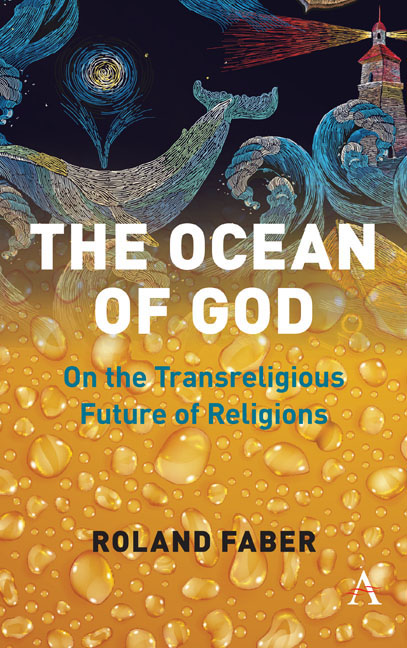Book contents
- Frontmatter
- Dedication
- Contents
- Introduction
- Part I Paradigms of Unity and Plurality
- Part II Negotiations of Multiplicity
- Chapter Six Convergences and Divergences: Juncture or Bifurcation?
- Chapter Seven Pluralism of Pluralisms?
- Chapter Eight Horizontal and Vertical Pluralism
- Chapter Nine An Experiment in Incompatibilities: Green Acre
- Chapter Ten The Mystery of Distinction and Unity
- Part III Transreligious Horizons
- Glossary
- References
- Index
Chapter Eight - Horizontal and Vertical Pluralism
from Part II - Negotiations of Multiplicity
Published online by Cambridge University Press: 09 July 2019
- Frontmatter
- Dedication
- Contents
- Introduction
- Part I Paradigms of Unity and Plurality
- Part II Negotiations of Multiplicity
- Chapter Six Convergences and Divergences: Juncture or Bifurcation?
- Chapter Seven Pluralism of Pluralisms?
- Chapter Eight Horizontal and Vertical Pluralism
- Chapter Nine An Experiment in Incompatibilities: Green Acre
- Chapter Ten The Mystery of Distinction and Unity
- Part III Transreligious Horizons
- Glossary
- References
- Index
Summary
Say: The rivers of divine wisdom and utterance which flowed through the Tablets of God are joined to this Most Great Ocean, could ye but perceive it.
— Bahá’u'lláhIn search for a clearer understanding of the complexities and perplexities arising from negotiation of the ambivalence whether to think of the projects of religious unity and pluralism as juncture or bifurcation in light of the twofold pluralism of pluralisms, I will introduce another differentiation, namely, that of two kinds of pluralism in light of any proposed unison (multiplicity) of religions. I define the one horizontally as synchronic pluralism and the other vertically as diachronic pluralism. In other words, one kind of pluralism, the horizontal one, will not only recognize the factual synchronic parallelism of multiple religions, but also establish its normativity for a healthy and healing conviviality of religions and a future civilization of peace. In its most general form, this synchronicity states that no matter what the future holds for religious reconciliation, it must always begin by recognizing the truth of the concurrent religions, whether or not they are of the same lineage; and it must assume that this multiplicity is not a failure, but a mode of polyphilic wealth of divine outpouring (emanation of the Good, fayd) and its beauty. The other kind of pluralism, the vertical one, will look at the whole scenery from a temporal perspective and interpret the appearance of new religions, without which there would never be a concurrent multiplicity of religions, as a necessity for the same divine outpouring and beauty to be an infinite pleroma. On this view, there will always be an unending process of generations of new religions.
It is worth noting at this point that in the process universe these two axes are mirrors of the creative process of becoming itself, whether that of an event or any nexus of events, that is, organizations of life forms and ecologies or cultures and religions. As every becoming is a gathering of a multiplicity to a novel unity, it will transcend the givenness it transforms. But no such novel gathering can avoid also yielding its uniqueness to a new multiplicity of forms, organizations, organisms, fields, species, cultures or religions it has joined.
- Type
- Chapter
- Information
- The Ocean of GodOn the Transreligious Future of Religions, pp. 93 - 102Publisher: Anthem PressPrint publication year: 2019



